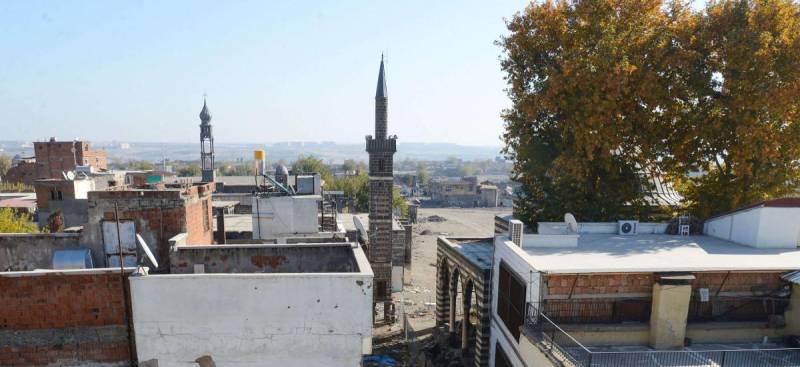I was detained again two days ago, this time because of my social media posts about the coronavirus and two critical articles I wrote about coronavirus measures in my hometown of Diyarbakır in southeast Turkey. I have been released after giving my statement, but only for now.
I came home. My two children were, of course, very scared. Honestly, I was scared too. I cannot be confident when I write a post or tweet anymore.
Today, for example, I deleted at least five tweets I had written since the morning. On the one hand, I have the feeling of responsibility to write about what happens in my home town and other Kurdish provinces, on the other hand, there is the feelings that arose when I saw the concern on the faces of my two sons as I came home
Meanwhile, of course, while the threat of the coronavirus is still among us, being in public places such as a police station, hospital or courthouse carries risks. Over the past four years, I have been sentenced to 10 months in prison, detained three times, my house has been raided by police twice and authorities have launched dozens of investigations against me. Now, I have to think again and again while tweeting or writing an article. How can I continue journalism and human rights advocacy in this situation?
I do not know the answer to this question. Thousands of journalists who live in countries with authoritarian governments and in conflict zones similar to mine are also struggling to find the answer. Journalists who are trying to raise their voices from Afghanistan, South Sudan, China, Vietnam or Eritrea are probably having trouble carrying their message to the capitals of their own countries. Six months ago, I met a journalist from Ethiopia. He told me he was afraid to even go out and see his mother and he was staying in a house close to the airport so that he could leave the country at any time.
Often these local journalists are unable to make their voices heard by their own people or the journalism organisations in their own countries. But they are the ones who feed the most famous journalists of the world with their local news from the most extreme places. What would Christiane Amanpour be able to say about Pakistan if there was no flow of news from local sources, and what would Anderson Cooper write about Somalia?
Local journalists all over the world are not only invisible but also more vulnerable to all kinds of threats and pressures, especially if they live in conflict areas. I am one of the lucky ones despite all my experiences. For example, my friend Nedim Türfent, a Kurdish journalist, has spent the last four years in prison and is serving a nine-year sentence for a piece of news.
And there are may more examples. Despite a medical report saying that his intestines collapsed, Ziya Ataman, a reporter for the shuttered Dicle News Agency, has been behind bars for the last four years and will remain for 10 more years, if he can survive.
There are so few organisations in the world today who advocate their rights and freedoms, or hear their voices and make them heard.
Journalism is already a risky profession in authoritarian countries, but if you do local journalism in small cities and conflict zones, where you can be easily found, and where you cannot hide in the crowds like in big cities, this risk grows in every sense. You live under physical, social, economic and psychological threats. You feel a huge sense of loneliness…
I am one of the local journalists who are relatively lucky, because I was able to establish relationships with international organisations, unlike most local journalists. The support of international organisations working on human rights, journalism and freedom of expression has been a protective shield for me in many places. If I am still free today, if I still live in Diyarbakır, where I can report and still hug my children, the most important reason for this is the solidarity of those international organisations.
Is it not time to increase this solidarity? If it is very difficult for local journalists to reach the ears of people in big cities, is it not time for centres to reach local journalists and establish solidarity mechanisms accordingly? I say clearly, I am free with the help of your solidarity, I am at home today thanks to your solidarity. Imagine that your messages from Brussels, Paris, Berlin, New York, Geneva or London can affect our freedom. Then it follows that these messages should be multiplied. You have to find new ways to reach us. We have to establish mechanisms to act fast without waiting for solidarity campaigns launched by local journalists and rights activists. Political pressures and judicial harassment have brought many local journalists to the crossroads. If we do not increase solidarity, many of us will perish. Dictators will prevail, and the truth will be left in the dark.
The world should hear our voices, the voice of Nedim, the voice of Ziya and many more…
We need to hear from you too.
